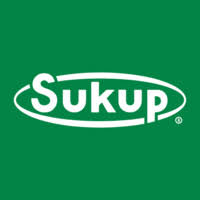Facebook messaging impact remains to be seen

Is it a Gmail killer? Probably not.
A tool for businesses? Maybe.
A shift in online communication? Definitely.
That’s how local social media experts feel about Facebook Inc.’s new e-mail and messaging platform announced last month by CEO Mark Zuckerberg.
In addition to e-mail, Facebook’s messaging platform will include tools to send instant messages as well as text messages. Users will be able to sign up for an @facebook.com e-mail address that will allow them to communicate with non-Facebook users.
The service is in the process of being unveiled on an invitation-only testing basis. How it could change the way businesses communicate with customers and people communicate among themselves remains to be seen.
Could businesses benefit?
The site is designed to let users send fewer traditional “stuffy” e-mails and be more of an integrated communication system, geared toward a younger audience’s way of communicating online, said Nathan Wright, founder of social media consulting company Lava Row Inc.
“They looked at what teenagers were doing, how they are messaging each other,” Wright said.
What they found was that younger people want Facebook e-mail to be less formal – more of a way to communicate between friends and family and less of a way to communicate as a professional.
Businesses can potentially use that mode of thinking to their advantage through Facebook’s medium. They already have the opportunity to market and advertise using the site’s existing features, but Wright believes the new e-mail system could somewhat change the concept of social media marketing.
“It just goes back to the fundamentals of being able to humanize your business,” he said. “So maybe it can’t be structured as brand-to-person. Maybe it’s ‘person at brand’-to-person. I think that’s maybe where it needs to go. People don’t trust companies; they trust people.”
The business strategy employed by Facebook seems to be to get people to stay on the site longer, which in the long run should lead to more advertising interest.
Beyond that, it’s still unclear exactly what businesses can do with the new platform. Currently companies can create fan pages and advertise on the site, but capabilities are limited. For example, there is no way for fan pages to send direct messages to their followers. Instead, they have to rely on fans to click on the page enough for updates to show up on a user’s wall. If they can’t communicate specifically through Facebook, businesses will still be able to send outside e-mails to a user’s @facebook e-mail address.
“It’ll be interesting to see what Facebook will be allowing businesses, who mostly at this point have created a business page or a Facebook ad, to do with this stuff,” said Katie Miller-Smith, director of Catchfire Media LLC. “If anything, businesses should continue to do what they do best and use the platforms that work best for them. If that is e-mail, continue to use that in an appropriate way, but be mindful of how the social application has changed, and be mindful of keeping those more engaged, personal relationships with customers, so that they can still make it into this much more privatized version of messaging.”
If companies are allowed more direct access to their customers, the trick is to find ways to keep them engaged.
“Businesses can’t abuse it like they did with e-mail marketing,” Wright said.
Facebook’s Help Center page suggests that users can get blocked for abusing the messaging system by sending too many messages or what could be deemed spam. It also says messages sent to mailing lists and broad distribution groups will be placed in an “Other” folder. Users will have the ability to filter their messages or block senders.
That means companies looking to communicate with fans have to be careful about how they do it.
“With social media, businesses have more opportunities and more data to use in order to figure out what people are using, said Norah Carroll, social media strategist at Lava Row. “I think it requires a lot of flexibility, and the companies are going to be able to succeed with this if they are attentive to what their fans want and roll with it.”
Simply put, “You’ve got to look to break the mold,” Wright said.
Changing online communication
Though Facebook e-mail has been tabbed as a “Gmail killer” by some industry experts, local social media consultants don’t see it as taking away from existing platforms such as Gmail, Google Inc.’s e-mail system, or Yahoo Inc.
“I think people will always continue to use niche products, regardless of how much it becomes more and more centralized,” Miller-Smith said. “For those who already have established Gmail accounts, which is millions of individuals, I don’t see this changing how they interact with those accounts, except just integrating them within the Facebook messaging platform.”
Rather than Facebook becoming a one-stop shop, it will likely serve its own purpose, which is different from that of Gmail or other platforms. Consultants see traditional e-mail as being a professional communication tool, and Facebook as being a personal way to communicate.
In the process, it could change the way people communicate in a social online setting.
“When you have a platform in place that supports the sending and receiving of messages seamlessly regardless of the medium, it’s interesting how that does and will shift the conversation and the individual you are having the conversation with,” Miller-Smith said. “This idea of it really returning the focus to the individuals, and it cutting out that middleman of the medium, I think that’s a really interesting concept, and something we haven’t seen yet.”










